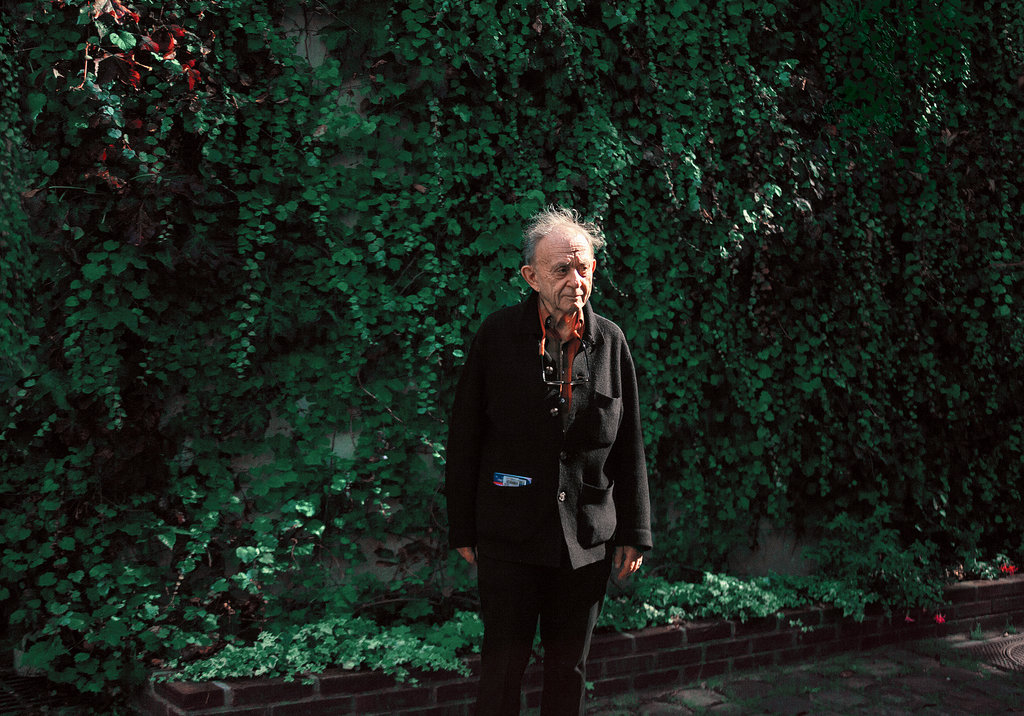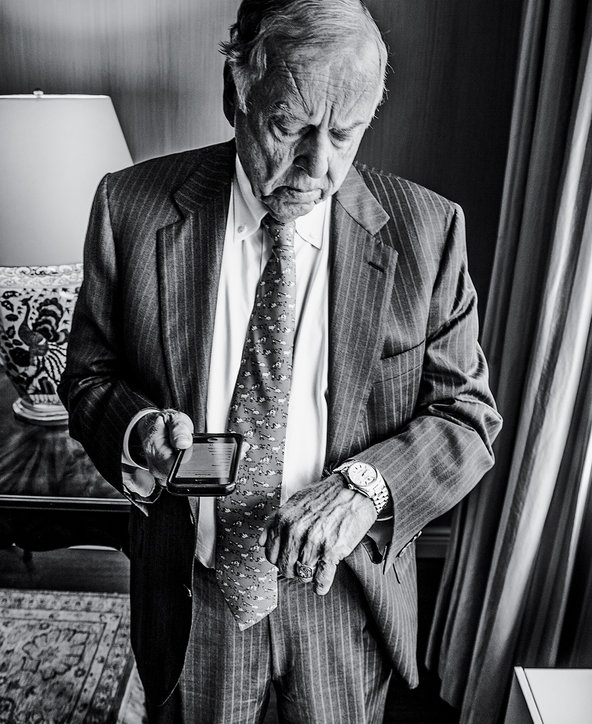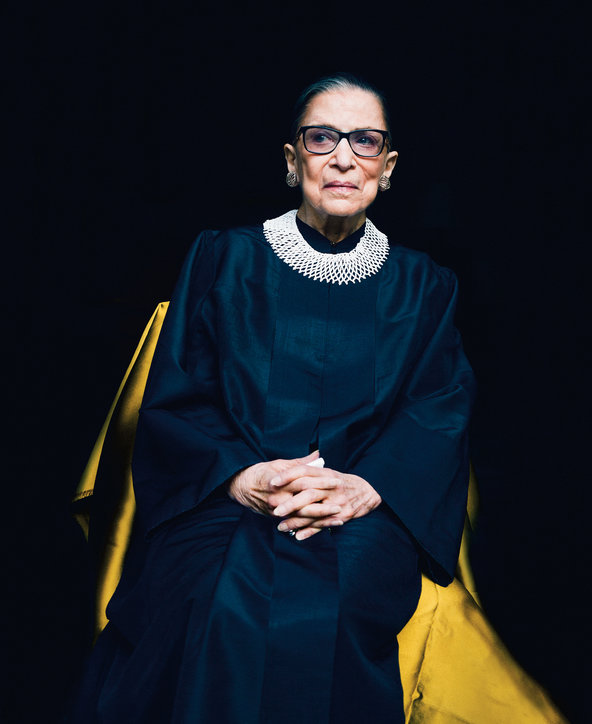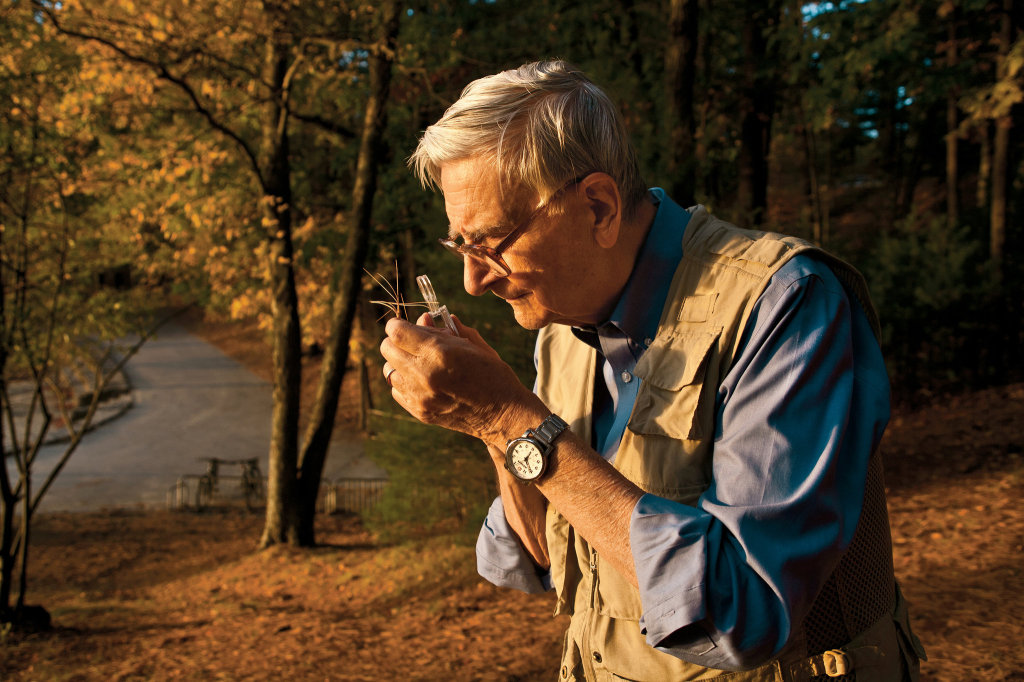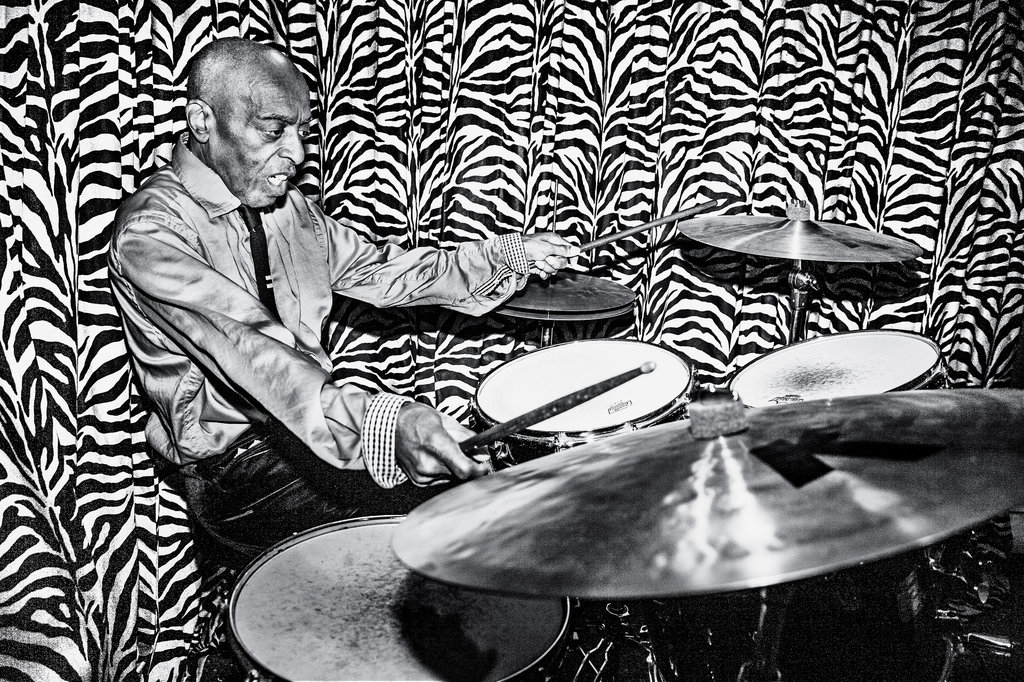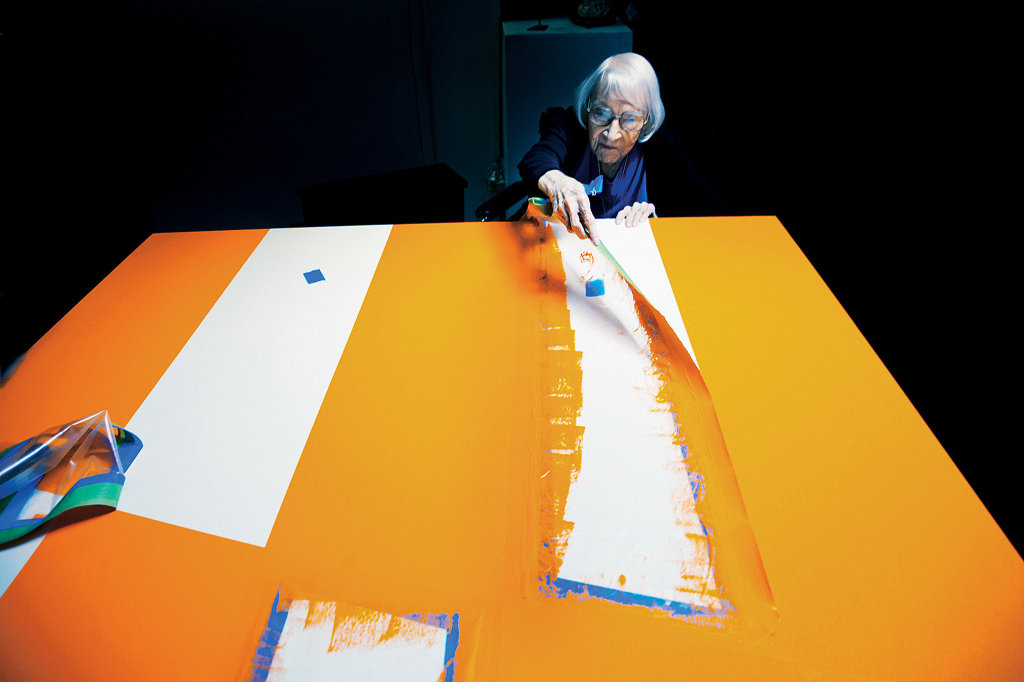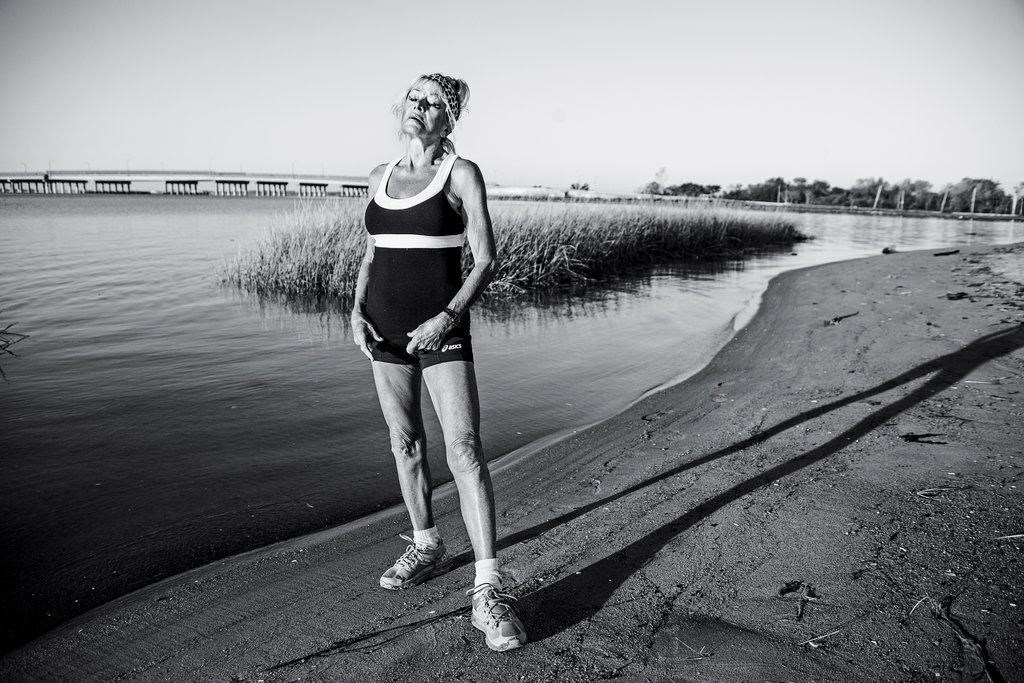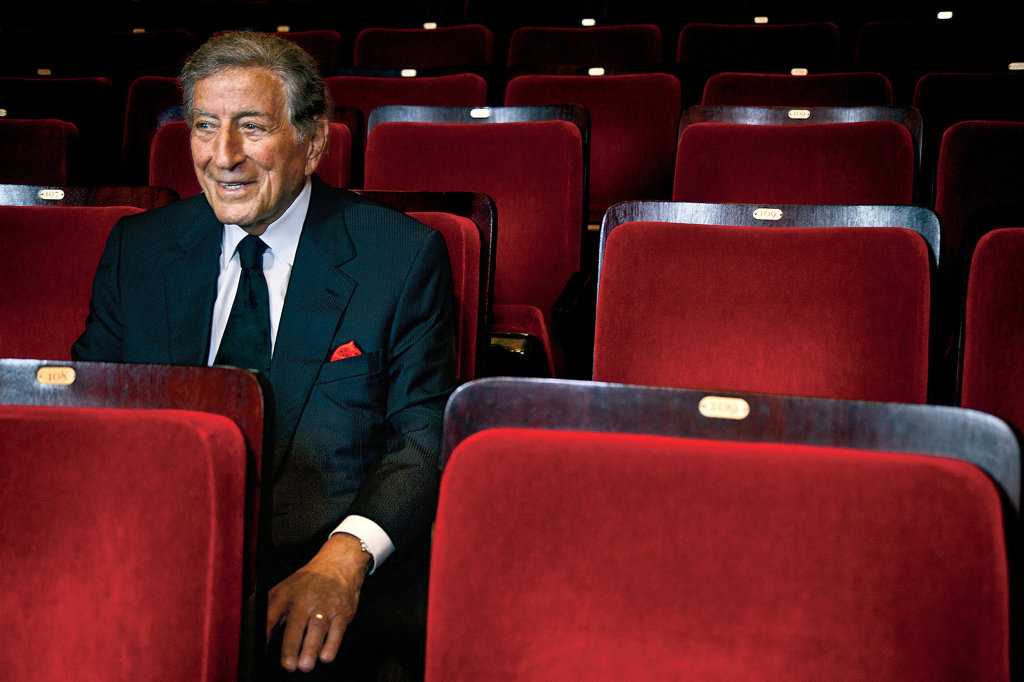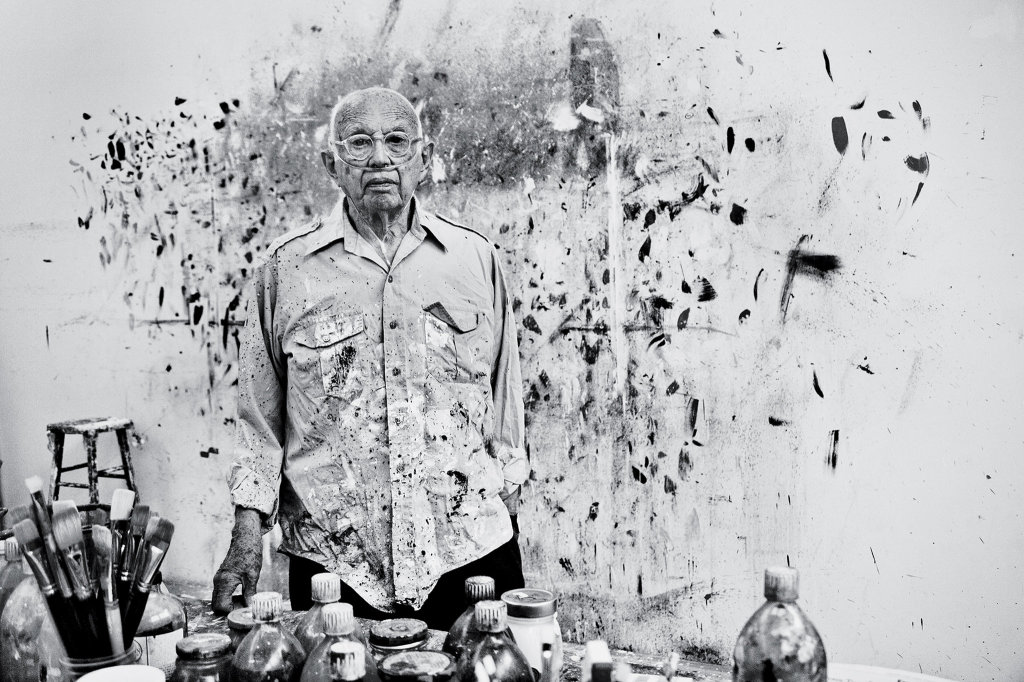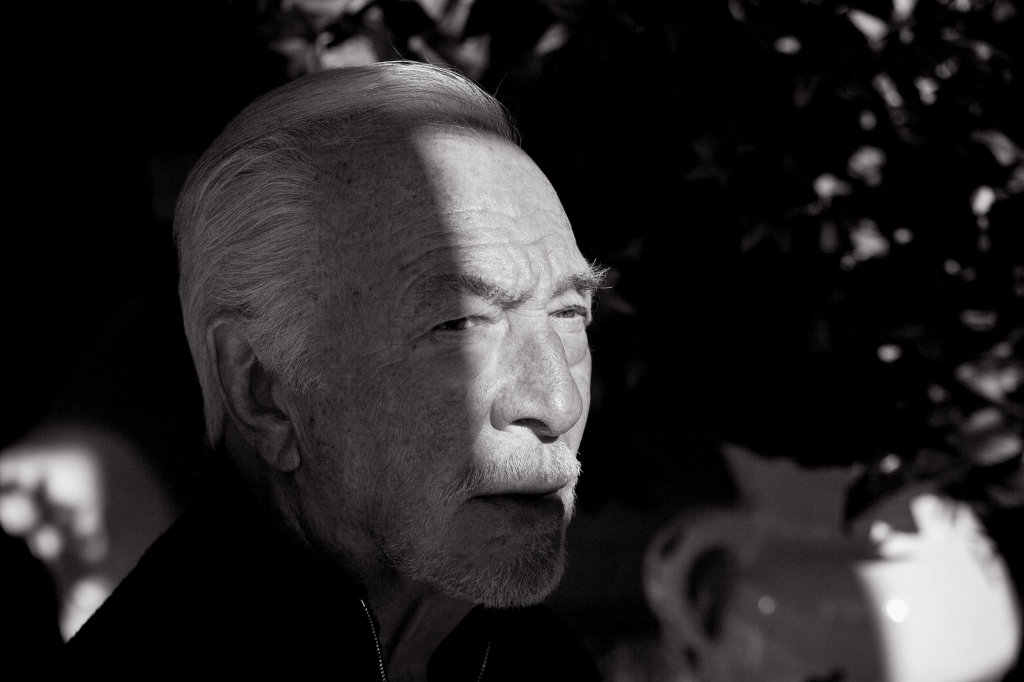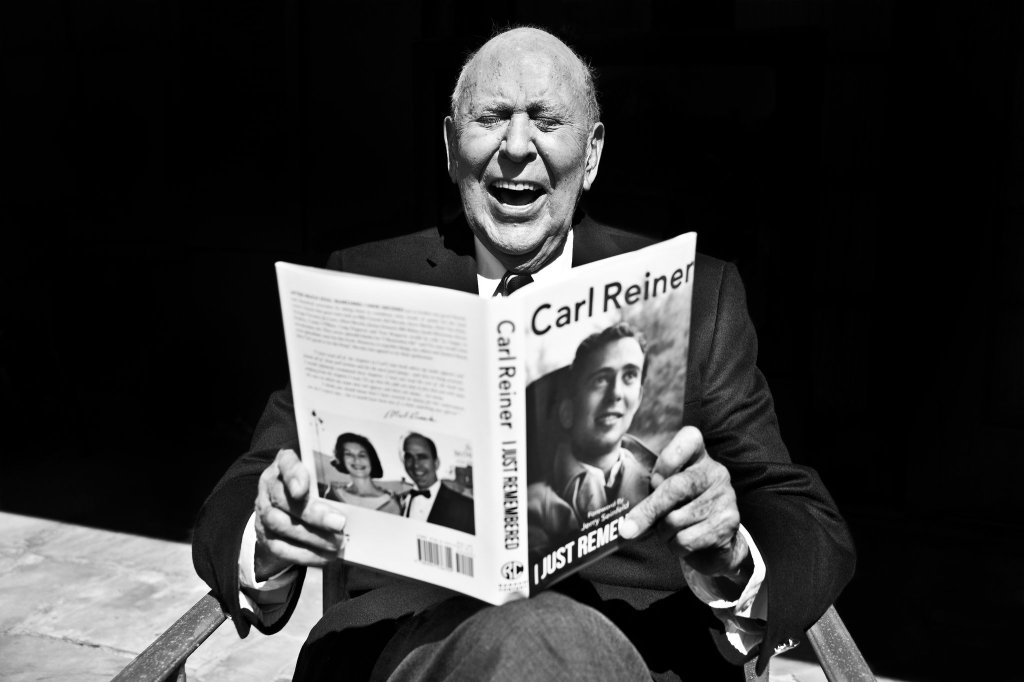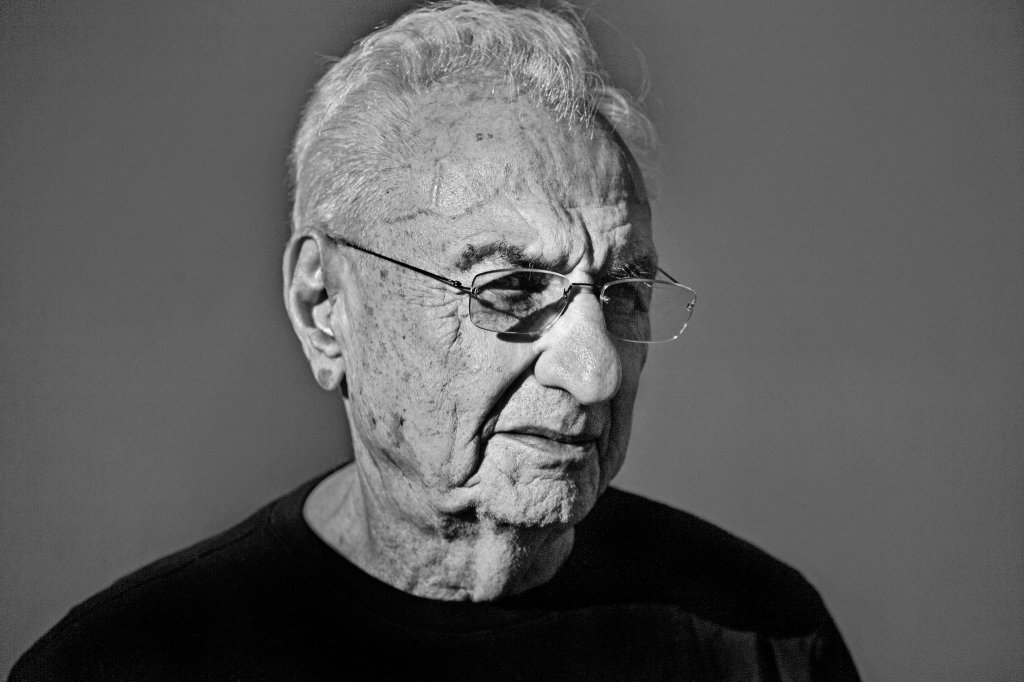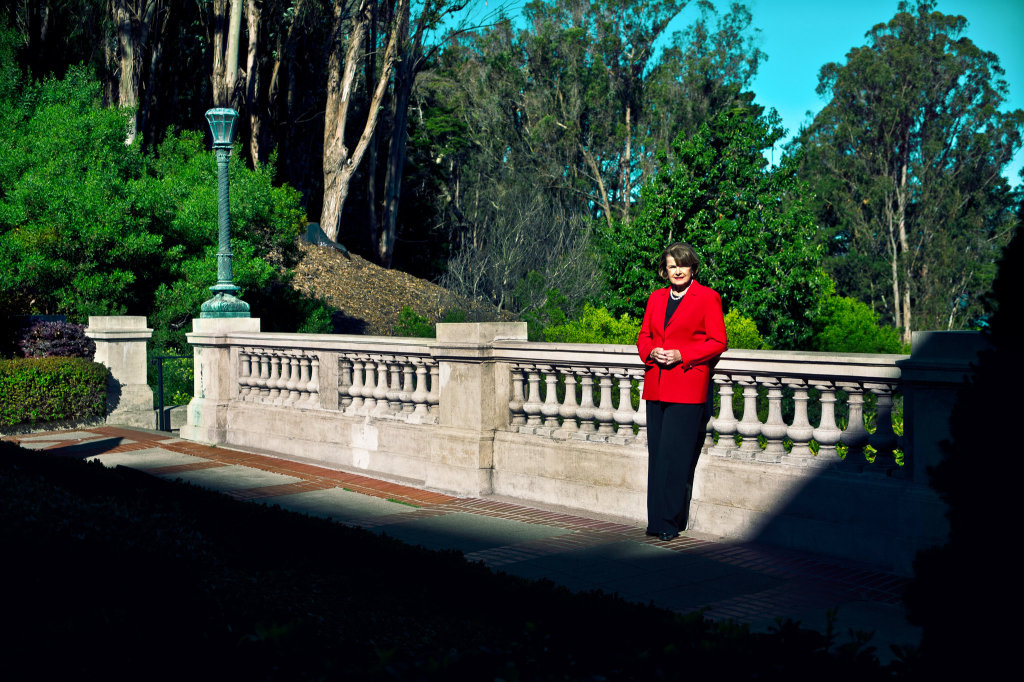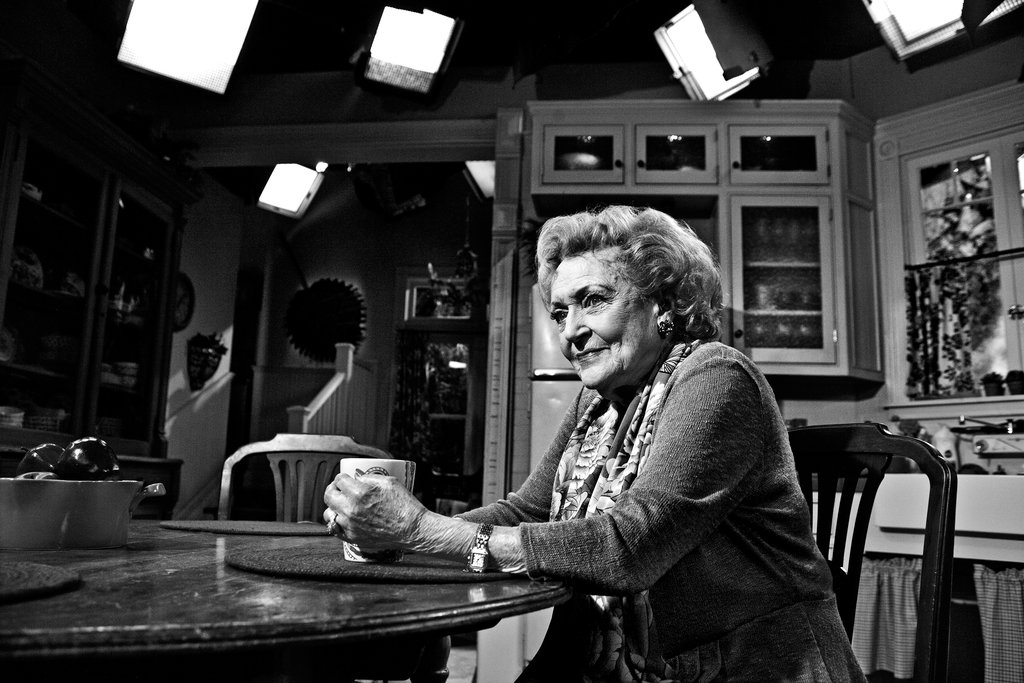Old Masters
INSPIRATIONAL, 27 Oct 2014
Lewis H. Lapham – The New York Times Magazine
After 80, some people don’t retire. They reign.
Frederick Wiseman, filmmaker, 84, on a walk in Paris. Wiseman’s documentary ‘‘National Gallery’’ had its premiere at the Directors’ Fortnight at Cannes this year.
Is there a difference from the way you work now and the way you worked when you were first starting out?
I think I’ve learned more about how to make a movie. The basic approach hasn’t changed. The method that I follow is the same one that I’ve always followed. I hope that I’ve learned from one movie to the next, at least enough not to make the same mistakes.
What’s the most grueling part of your filmmaking then?
Raising the money.
Early on, did you ever think you’d still be making movies at your age?
I didn’t think about it at all. I have a hard time recognizing that I’m 84, almost 85. I’m in complete denial, which I think is extremely useful. Of course from time to time I allow myself to be aware of it, but it’s not something that I dwell on. I like working. I work very intensely.
Any advice for young filmmakers?
Marry rich.
And what about advice for your peers, filmmakers your age?
Everybody complains about their aches and pains and all that, but my friends are either dead or are still working.
***************************
The portraits here are of men and women in their 80s and 90s, rich in the rewards of substantial and celebrated careers, and although I know none of them except by name and reputation, I’m asked why their love’s labor is not lost but still to be found. Why do they persist, the old masters? To what end the unceasing effort to discover or create something new? Why not rest on the laurels and the oars?
The short answer is Dr. Samuel Johnson’s, in a letter to James Boswell in 1777: “Depend upon it, sir, when a man knows he is to be hanged in a fortnight, it concentrates his mind wonderfully.” A longer answer is that of the 19th-century Japanese artist Hokusai, who at 75 added a postscript to the first printing of his “One Hundred Views of Mount Fuji”:
“From the time that I was 6 years old I had the mania of drawing the form of objects. As I came to be 50 I had published an infinity of designs; but all that I have produced before the age of 70 is not worth being counted. It is at the age of 73 that I have somewhat begun to understand the structure of true nature, of animals and grasses, and trees and birds, and fishes and insects; consequently at 80 years of age I shall have made still more progress; at 90 I hope to have penetrated into the mystery of things; at 100 years of age I should have reached decidedly a marvelous degree, and when I shall be 110, all that I do, every point and every line, shall be instinct with life — and I ask all those who shall live as long as I do to see if I have not kept my word.”
Hokusai died in 1849 in his late 80s, by all reports still far from satisfied with his work then in progress. I’m not surprised. When I was 6, I delighted in the act of writing, at 12, in the expecting that by the time I turned 21, I would know how to make of it an art. The birthday came and went, and no dog showed up with the bird in its mouth. Before I was 30, I’d written seven drafts of a first novel mercifully unpublished; I consoled myself with the thought that by the time I was 40, I would know what I was doing. Another dream that didn’t come true, and so when I was 45, I began to explore the uses of the essay, the term from the French essayer (to try, to embark upon, to attempt), the form experimental and provisional, amenable to multiple shifts of perspective and tone, and therefore the best of instruments on which to practice the playing with words. The essay proceeds from the question “What do I know?” and doesn’t stay for an answer until the author finds out what he means to say by setting it up in a sentence, maybe catching it in the net of a metaphor.
On the way through my 50s I could see signs of progress, producing manuscripts that required only extensive rewriting, not the abandonment of the whole sorry mess of a dumb idea. Revisions pursued through six or seven drafts allowed for the chance to find the right word, to control the balance of a subordinate clause, to replace the adjective with a noun. I didn’t enlist the help of a computer because words so quickly dressed up in the costume of print can pretend to a meaning and weight they neither enjoy nor deserve. Writing with a pen on paper, I can feel the shape and sound of the words, and I’m better able to judge how and why one goes with another, and on approaching the age of 70 I toyed with the hope that success was maybe somewhere not far away in a manger or on the near side of a rainbow.
Now I am 79. I’ve written many hundreds of essays, 10 times that number of misbegotten drafts both early and late, and I begin to understand that failure is its own reward. It is in the effort to close the distance between the work imagined and the work achieved wherein it is to be found that the ceaseless labor is the freedom of play, that what’s at stake isn’t a reflection in the mirror of fame but the escape from the prison of the self.
T. H. White, the British naturalist turned novelist to write “The Once and Future King,” calls upon the druid Merlyn to teach the lesson to the young prince Arthur:
“You may grow old and trembling in your anatomies, you may lie awake at night listening to the disorder of your veins, you may miss your only love, you may see the world about you devastated by evil lunatics, or know your honour trampled in the sewers of baser minds. There is only one thing for it then — to learn. Learn why the world wags and what wags it. That is the only thing which the mind can never exhaust, never alienate, never be tortured by, never fear or distrust, and never dream of regretting.”
The lesson can also be drawn from the strength of the work done in the dying of the light by the octogenarian and nonagenarian students of the several and various arts — by, among others in a very long list, Michelangelo, Titian, Thomas Hardy, Claude Monet, Georgia O’Keeffe, Donatello, Pablo Casals, Jasper Johns, Giuseppe Verdi, Toni Morrison and Picasso.
John D. Rockefeller in his 80s was known to his business associates as a crazy old man possessed by the stubborn and ferocious will to know why the world wags and what wags it, less interested in money than in the solving of a problem in geography or corporate combination. By sources reliably informed I’m told that Warren Buffett, 84, and Rupert Murdoch, 83, never quit asking questions. Sophocles in his early 90s wrote “Oedipus at Colonus”; the American journalist I. F. Stone began the study of ancient Greek in his 70s in order that he might read the play in the language of its birth. Stone, the most relentless investigative reporter of his generation, had uncovered the truth known to both Hokusai and T. H. White, and the lesson I’m now almost old enough to learn: that the tree of knowledge and the fountain of youth are one and the same.
***************************
T. Boone Pickens, chairman of BP Capital Management, 86, at the Lowell Hotel in Manhattan.
How does being 86 affect your work?
I don’t consider myself to be this old. I just go to work like I did 10, 20, 30, 40 years ago. I work the same hours. I haven’t semiretired or slowed down. I have a trainer that comes in at 6:30 in the morning, and I’m at the office at 8 o’clock.
What are the advantages to being your age in your business?
I have a vast amount of experience. There are very few things I see that surprise me. I’ve seen it or something close to it with each thing I come across. I was with a doctor the other day, and he said the reason that I’m so alert and all is probably that I do work. I go to work and start the meeting with my partners, 8 o’clock till 9 a.m. till commodities open, equities open and there’s discussion of world affairs and everything. Then everybody goes their separate ways. . . . We have another meeting when the market closes. We know exactly how we did that day. We know how much we made or lost. After the market closes at the end of every day, we know how we stand.
It seems important to you that you stay relevant. For example, you’re active on Twitter.
I don’t physically do it. My assistant does it for me. But I say what I want to say, and it gets on there. I’m interested when somebody like Drake says, ‘‘The first million is hard,’’ and I said something like: ‘‘Yeah? Try the first billion.’’
I’m guessing there is no point to asking when you plan on retiring?
I’m going to retire in a box being carried out of my office.
Justice Ruth Bader Ginsburg, 81, in the Lawyers’ Lounge of the Supreme Court.
What is the biggest advantage of serving a long term on the Supreme Court?
What seniority means here, and by the way I am not the most senior justice even though I am the oldest, well, almost everything at the court is done by seniority. Even where we sit on the bench and at conference. I speak earlier at conference than I did before. I’m No. 5 now. I started as No. 9.
And does seniority offer any more influence?
Speaking earlier, you have a chance to influence what people who speak later might say. Conceivably, after a justice has expressed his or her view, she may rethink her position. But that is uncommon.
What has been the most surprising thing for you about moving into your 80s?
Nothing surprised me. But I’ve learned two things. One is to seek ever more the joys of being alive, because who knows how much longer I will be living? At my age, one must take things day by day. I have been asked again and again, “How long are you going to stay there?” I make that decision year by year. The minute I sense I am beginning to slip, I will go. There’s a sense that time is precious and you should enjoy and thrive in what you’re doing to the hilt. I appreciate that I have had as long as I have. . . . It’s a sense reminiscent of the poem ‘‘Gather ye rosebuds while ye may.’’ I had some trying times when my husband died. We’d been married for 56 years and knew each other for 60. Now, four years later, I’m doing what I think he would have wanted me to do.
Edward O. Wilson, naturalist and author, 85, at Walden Pond in Massachusetts. Wilson published a book, ‘‘The Meaning of Human Existence,’’ this year. It is the second in a trilogy.
You are the world’s foremost expert on ants, and now you’re asking about the meaning of human existence and the future of humanity. Has growing older pushed you to these bigger questions?
I couldn’t have asked these questions before. I was too engaged in the hands-on research, especially in the field.
So how has age contributed to your more recent books?
I think age contributed a great deal to my undertaking in this recent trilogy of books. First because I feel I have enough experience to join those who are addressing big questions. Second is because about 10 years ago, when I began reading and thinking more broadly about the questions of what are we, where did we come from and where are we going, I was astonished at how little this was being done. I’ve come to appreciate that we’re wrecking the planet, especially in the living part of the planet. The public response and the intellectual response to that particular crisis have just been unacceptably weak.
Now that you’re 85, how do you see your future?
I haven’t sensed anything, and I don’t think others have sensed yet that’s an obvious deterioration of what I’m doing. When I feel it I’ll stop. What I’ll do then is try to take more time in going back to the field with my butterfly net.
Roy Haynes, jazz drummer and bandleader, 89, in his basement practice space on Long Island. Haynes’s latest album was ‘‘Roy-Alty,’’ released in 2011.
You travel a lot, and it sounds as if you have no intention of slowing down.
I’ve been traveling since 1945. That’s the year I moved from Boston to New York. In doing something since I was a teenager, traveling all over the world, meeting people, having them meet me, drumming’s just a continuous way of life. And it’s still going on. I’ve been doing this longer than I’ve been doing anything else.
What keeps you going?
You get to be this age, you think you know a little more about life. With my traveling around, it’s quite exciting, and I’m sure it keeps me young. A lot of the people I play with are much younger than me. Young enough to be my children or my grandchildren. People say I look young. The average person if they asked how old I was wouldn’t expect me to be the age I am.
But how do you maintain your stamina?
I don’t know. If I knew, I’d just write a book on that and forget playing drums. I’d become richer.
Carmen Herrera, painter, 99, in her Manhattan studio. Herrera sold her first painting at age 89. Today her work is in the permanent collections at the Museum of Modern Art and the Tate Modern.
When did you start to have confidence in your work?
It all began in Paris in the late ’40s. I was then involved with the Salon des Réalités Nouvelles. I recall its director, Fredo Sidès, saying to me, ‘‘Madame, you have many beautiful paintings in this one work.’’ I thought about it and decided that he was right! So I started taking things out. And I have never stopped doing that.
You painted for decades, but didn’t sell your work until just 10 years ago. What kept you going?
I do it because I have to. I have my ideas. I do my drawings. I make my paintings. It’s my love of the straight line that keeps me going. This has not changed.
What was your reaction when you sold your first painting at 89?
I was never bitter. I always wished others well. I thought maybe the market would be corrupting. Without commercial success you can do what you want to do. There is freedom to be working alone. But, oh, when my work began to sell! I thought, Damn it, it’s about time!
At 99, how do you view your future?
I am always waiting to finish the next thing. Absurd, I know. I go day by day.
Ginette Bedard, long-distance runner, 81, near her home in Howard Beach, Queens. Bedard will run in her 12th consecutive New York City Marathon this year.
You ran your first marathon at age 69. How did you do?
I came in second in my age group, I think 65 to 69, and the next year I came in first. And I think I was 72 when I beat the world record for my age group, 3:46 or :45.
Do you run with a partner? Or listen to music?
No, no, nothing. I run. I think of my past. My childhood in France. Everything. Sometimes I may have an issue I’m thinking about. I’ll think about my past job. Or current events. A bit of everything.
How long will you keep running marathons?
I’m going to do this until destiny takes me away. When they gave me the last trophy last Sunday for the half marathon in Central Park, the trophy said, ‘‘From 80 to 99,’’ and I thought, O.K., I’ve got 20 years to go yet. There’s no one left. It’s easy to win.
Tony Bennett, singer, 88, at Carnegie Hall. Bennett released ‘‘Cheek to Cheek,’’ an album of duets with Lady Gaga, this year. It debuted at No. 1 in Billboard.
What keeps you going?
Here I am at 88, and I still feel like I have an awful lot to learn, today and tomorrow and the next day and the next day. About my craft. About how to become a better artist. About coming up with creative ideas.
How is it sharing the stage with Lady Gaga?
The whole thing about doing the album with Lady was to get the young kids to hear the Great American Songbook. And she’s great. She sings beautiful, she’s a wonderful improviser. I said, ‘‘Don’t ever stop singing like that, you’re a beautiful singer.’’ And she says that I turned her life around. That she knows she has a good voice, and she’s going to sing that way now.
Now that you’re nearly 90, what has changed the most for you about performing?
I’ve learned that it’s what you leave out of a performance, not what you put into it. Fred Astaire taught me this. He explained: ‘‘When you have a show and it’s perfect, where every song works, no matter how perfect you think it is, go in and pull out 15 minutes of it. Don’t stay onstage too much. Know when enough is enough.’ I’ve learned that less is more. It’s not because of age, but it’s the right thing to do. Don’t overstay your welcome.
How do you keep up your stamina to tour with Lady Gaga?
A lot of tennis. I’m not that good, but I love to play and watch.
Ellsworth Kelly, artist, 91, at his studio in Spencertown, N.Y. Last year, President Obama presented Kelly with the National Medal of Arts.
What’s different about your life now that you’re older?
When I was 79, I asked my doctor, ‘‘I’m 79 and you say I’m in good health, what should I expect from the 80s?’’ And he said: ‘‘If you haven’t got any of the Mayo diseases, you’re pretty good. You can slide right through.’’ And I said, ‘‘What about the 90s?’’ And he said, ‘‘Well . . . we’ll talk about that.’’ But I didn’t sail through exactly. What happened five years ago is I discovered that painting with turpentine, which I’ve been doing since the 1940s, had ruined my lungs. So I’ve been on oxygen ever since.
Any surprises?
I don’t travel now. That’s the big thing. But I’m here [in Columbia County, N.Y.], and I love it. Each year I’m very surprised by the color. . . . It’s one thing about getting older, you see more. . . . Everyday I’m continuing to see new things. That’s why there are new paintings.
What are your days like now?
I’m in the studio everyday. I draw a lot. . . . I chose plants because I knew I could draw plants forever. I want to work like nature works. I want to understand the growth of plants and the dead leaves falling. Oh, how I connect with that!
Christopher Plummer, actor, 84, at his home in Connecticut. In 2012, Plummer won the Academy Award for best supporting actor for his role in ‘‘Beginners,’’ making him the oldest actor to win the award.
What has surprised you the most about being your age?
Well, the fact that there were no surprises surprised me. I don’t feel any older now or less flexible than I did when I was 60 or 55. It just goes on.
Was this information that was passed along to you, or did you have to find it out yourself?
Well, most of my contemporaries and friends have kicked the bucket. An awful lot of them are gone. But the ones whom I admired, for instance John Gielgud, was working when he was 96. And I remember thinking, Good God, that’s amazing.
I keep hearing that staying in shape is crucial past a certain age. Anything else?
Yes. And so is doing the work. It uplifts you. The idea that you’re doing what you love. It’s very important. It’s very sad that most people in the world are not happy with their lot or with their jobs and they can’t wait to retire. And when they retire, it’s like death. . . . They sit at home and watch the television. And that is death. I think you’ve got to continue. We never retire. We shouldn’t retire. Not in our profession. There’s no such thing. We want to drop dead onstage. That would be a nice theatrical way to go.
R. O. Blechman, illustrator and author, 84, on his property in Ancram, N.Y. In 2009, Blechman published the book ‘‘Dear James: Letters to a Young Illustrator.’’
What do you know now that you didn’t know when you were younger?
It’s important to stay with a project and not give up because it doesn’t seem to be breaking for you. Whatever it is. I’m reminded of what a Russian scientist once said: ‘‘Ice forms instantly, but the process of forming the ice is slow and invisible.’’
How is your work itself different now from 30, 40, 50 years ago?
Doing the work hasn’t changed. I’m the same the guy I was 30, 40, 50 years ago. But I think I’m freer now. I think I’m better. It’s crazy. As it goes downhill, I’m going up.
What do you see for your future?
On Henry James’s deathbed, his late brother’s widow saw that as James was dying, his hand moved across the bedsheet as if he were still writing. I want to die like him.
Carl Reiner, actor, 92, at his home in Beverly Hills, Calif. Reiner published his second memoir, ‘‘I Just Remembered,’’ this year.
Has the process of writing for you changed?
It has not changed. I still only write from the gut, I can only write about what I know. The only thing I research is if I’m writing about someone I don’t know. Thank God for Google. Otherwise I go by the seat of my pants.
What advice to you have for younger people in show business?
The best thing I ever did was marry correctly. I gave it a title, LOML, love of my love. She informed everything I ever did. She was the smartest person I know. She raised three great children and one great husband. Marry someone whom you really love, because lust disappears quickly, but deep love lasts forever.
Is there anything you know now that you didn’t know as a younger man?
Well, I never was looking for the final chapter. Now if any time something goes a little askew, like if I’m feeling a little poorly, I use Edward G. Robinson’s line from ‘‘Little Caesar,’’ ‘‘Is this the end of Rico?’’ I’m constantly saying that to Mel [Brooks]. . . . We usually eat together. We agree on the same programs to watch. . . . We watch the ballgame, and Mel yells at the set. He yells at the manager. And sometimes they listen to him. We have a very big set.
Frank Gehry, architect, 85, at his office in Los Angeles. Gehry’s latest project was the Fondation Louis Vuitton in Paris, an arts center sponsored by the LVMH Fashion Group.
What has changed the most for you about your work since you’ve hit your 80s?
Buildings take seven years from the time you’re hired until you’re finished. There’s always that pause in my mind now when we get a new project. And then I think about it for a few minutes, and I say: ‘‘Ah, screw it! Full speed ahead.’’
Are you finding that work for you is simpler or more complicated?
Well, there are days here when I think I’m absolutely losing it. But my closest staff says that I’m doing more things than I’ve ever done. According to them, I’m having more different meetings, more different challenges, and I’m meeting them. Working at top speed, they think. So I’m just listening to them
As you prepare to give up your business to the next generation, how do you avoid becoming a control freak?
That’s the hardest thing for me. I’m still grappling with it. I’ve been letting it happen on things that are personal, like my house that [my son] Sam’s designing, where I’m taking the risk. I’m not foisting him on a client. And he’s doing remarkably well. I would have done it differently, but I’m going with it.
How do you stay intuitive?
You stay in your time. You don’t go backward. I think if you relate to the time you’re in, you keep your eyes and ears open, read the paper, see what’s going on, stay curious about everything, you will automatically be in your time.
Senator Dianne Feinstein, 81, near her home in San Francisco. Feinstein has been a member of the United States Senate since 1992.
What’s the benefit of 50-plus years of experience in politics?
Based on experience, you know how much can get done at a particular point. And when timing and opportunity combine, you can get something done. Like a bill passed. Politics is the art of the possible. But you have to understand what is possible at a given time.
Is this something you’ve learned recently, or something you’ve known all along?
I understood it by experience when I was mayor of San Francisco. It was a very fragmented city, full of hate. I became mayor as a product of assassination. It was perhaps the most difficult time in my political life. I learned a lot about bringing people together instead of splitting them apart.
Is there anything that has surprised you about being in your age, either personally or professionally?
No. You don’t feel any different. Age isn’t chronological in my view. Age is very much individual. Some people age faster than others. You can see that everywhere. Some people lose brain cells faster than others. Some people lose body functions faster than others. So if you keep all those things, there is no reason age is any kind of a deterrent.
Betty White, actress, 92, on set in Studio City, Calif. White currently stars in the TV Land original sitcom ‘‘Hot in Cleveland.’’
What do people get most wrong about being old?
We’ve made age such a terrible thing that the younger people think that just getting to that age is awful. But if you’re blessed with good health, and I am, and I never take it for granted, you can get by with murder! You get spoiled rotten.
Now that you are older, what has changed the most for you in your work?
I don’t know that anything’s changed. I’ve been playing older parts for, oh, a couple hundred years.
So how do you stay in shape?
I have a two-story house and a very bad memory, so I’m up and down those stairs all the time. That’s my exercise.
Do you have your bucket list of showbiz goals?
I’m so busy, and I’m always booked, so I have no time to think about it. I’m working all the time. . . . I just love to work — getting to connect with the audience, knowing that the camera is another friend in the room, and the fact that all the jokes don’t work but when they do it’s a great kick. So I keep saying yes instead of no.
____________________________
Photographs by Erik Madigan Heck.
DISCLAIMER: The statements, views and opinions expressed in pieces republished here are solely those of the authors and do not necessarily represent those of TMS. In accordance with title 17 U.S.C. section 107, this material is distributed without profit to those who have expressed a prior interest in receiving the included information for research and educational purposes. TMS has no affiliation whatsoever with the originator of this article nor is TMS endorsed or sponsored by the originator. “GO TO ORIGINAL” links are provided as a convenience to our readers and allow for verification of authenticity. However, as originating pages are often updated by their originating host sites, the versions posted may not match the versions our readers view when clicking the “GO TO ORIGINAL” links. This site contains copyrighted material the use of which has not always been specifically authorized by the copyright owner. We are making such material available in our efforts to advance understanding of environmental, political, human rights, economic, democracy, scientific, and social justice issues, etc. We believe this constitutes a ‘fair use’ of any such copyrighted material as provided for in section 107 of the US Copyright Law. In accordance with Title 17 U.S.C. Section 107, the material on this site is distributed without profit to those who have expressed a prior interest in receiving the included information for research and educational purposes. For more information go to: http://www.law.cornell.edu/uscode/17/107.shtml. If you wish to use copyrighted material from this site for purposes of your own that go beyond ‘fair use’, you must obtain permission from the copyright owner.
